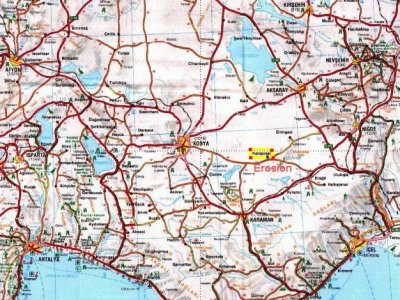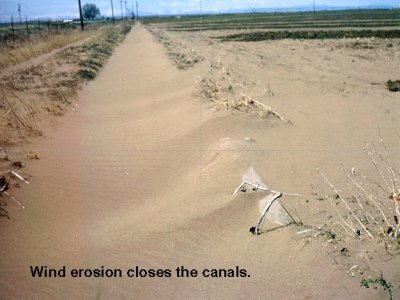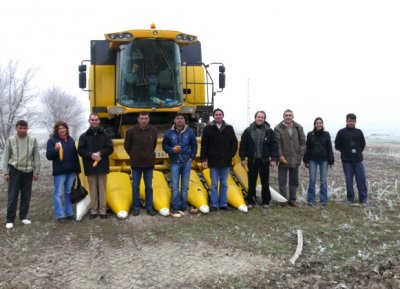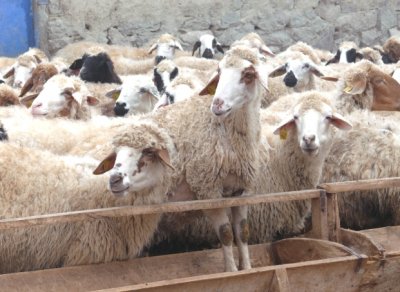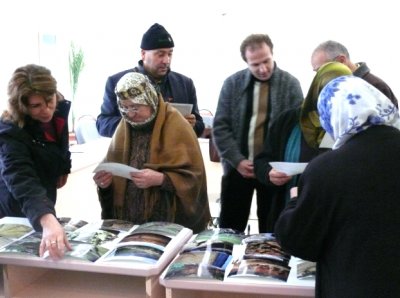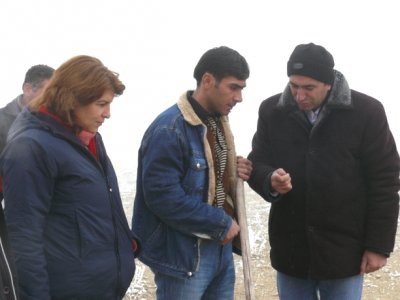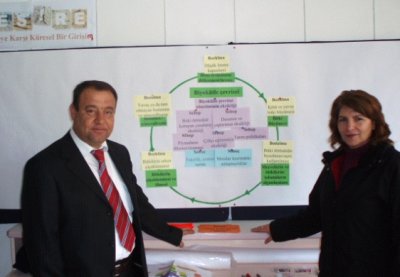| Identifying strategies: Stakeholder Workshop 1 |
 |
|
The results of the first DESIRE stakeholder workshop held in Karapinar, Turkey, 26-28 December 2007.
Disturbances identified in the water and biomass cycles Farmers identified rainfall deficit and heavy exploitation of groundwater (mainly due to the use of inefficient surface flow irrigation) as the main disturbance in the water cycle. Lack of organic matter in the weak and thin soils is a significant factor in low water retention. Poor (or absent) vegetation cover affects soil water retention and promotes high evaporation rates. The main causes of disturbances in the biomass cycle were regarded to be the arid climate, low soil productivity (due to lack of organic matter and nutrients), lack of vegetation cover due to low rainfall and high evaporation rates, and unmanaged grazing
Causes and effects of land degradation Many causes of land degradation in the area are thought to be external factors such as arid climatic conditions and socio-economic factors (fragmentation of croplands, lack of enough and suitable subsidies, market pressure, higher input costs (mainly energy), lower incomes). Local agronomic factors were also named as causes subh as excessive inorganic fertilizer use, low organic matter content and deep soil tillage. Farmers think that the consequence of this process is less respect to soil-heavy exploitation of pasture lands, overuse of soil, lack of soil conservation techniques.
Socio-cultural, economic, political and legal constraints Farmers altogether accept their laziness in individual reforestation initiatives. They cannot explain why they do not grow even some fruit trees in their garden boundaries where enough water is available. Some villagers mention mistaken beliefs such as that some wheat diseases are hosted by certain surrounding trees. Economic and political factors are always regarded by farmers as the main causes of their actual situation. The fluctuating, uncertain nature of crop markets, high income costs (oil, electricity, fertilizers, agricultural machines), shrinking of the agricultural population by new legislation, lack of suitable subsidies/wrong subsidies were thought to be important factors. Some farmers indicated the heavy procedural difficulties in getting agricultural credit from state banks or farmer organisations.
Solutions already applied at the local level At present local stakeholders have no clear understanding of how to prevent or mitigate land degradation in the area. Groundwater over use, for example, is already underway, but instead of changing crop patterns to those which are more suitable for drip irrigation, they are looking at drilling illegal boreholes. Nowadays there is significant financial support for adaptation and education about drip irrigation from central government. Free (or very cheap) soil analysis by GO and NGO, financial support for certain fodder crops and other solutions from governmental agencies.
|
|||||||||||||||||||||
Study sites
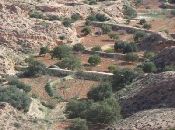
Acknowledgement
The DESIRE project was
|
DESIRE brought together the expertise of
26 international research institutes
and non-governmental organisations.
This website does not necessarily
represent the opinion of the
European Commission. The European
Commission is not responsible for
any use that might be made of the
information contained herein. 

